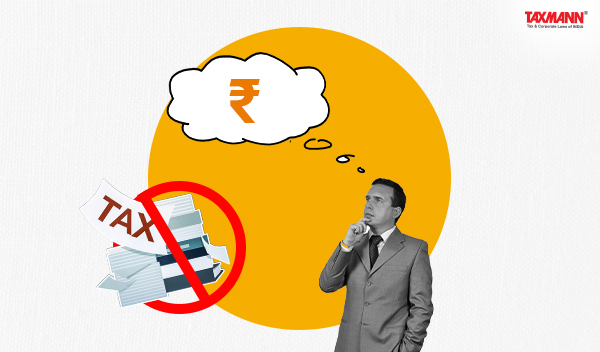Hypothetical Income in Agreement Not Taxable Until Stipulated Conditions Are Satisfied | ITAT
- News|Blog|Income Tax|
- 2 Min Read
- By Taxmann
- |
- Last Updated on 9 February, 2025

Case Details: Assistant Commissioner of Income-tax vs. Suryanarayana Iyer - [2025] 170 taxmann.com 831 (Chennai-Trib.)
Judiciary and Counsel Details
- ABY T. Varkey, Judicial Member & Amitabh Shukla, Accountant Member
-
Ms G. Vardini Karthik & V. Arunachalesh, Advs. for the Appellant.
-
Dr. Samuel Pitta, JCIT for the Respondent.
Facts of the Case
The assessee, an individual, entered into an agreement with a company to provide judgments for various courts/tribunals. The assessee was to receive total compensation, out of which the assessee had received only a certain amount during the relevant assessment year.
The Assessing Officer (AO) was of the view that the assessee ought to have received the balance amount of compensation as per the agreement. Since the assessee had only offered a certain amount, the balance amount needed to be added by the AO as income accrued to the assessee. The AO made the addition to the assessee’s income while following the mercantile system of accounting.
On appeal, the CIT(A) deleted the additions. Aggrieved by the order, the AO filed the instant appeal before the Tribunal.
ITAT Held
The Chennai Tribunal held that the terms and conditions concerning the grant of license, delivery of licensed materials, the compensation payable etc., are contained in the License agreement between the parties. The right to receive the income accruing under the agreement arose only after the inspection, review, and acceptance of the materials by the party as stipulated under the agreement.
Until the conditions stipulated in the agreement were satisfied, the income embedded in the relevant agreement was only hypothetical income. It is well settled that income can be said to accrue only when the assessee acquires a right to receive that income. Such accrual may depend on the agreements which may give rise to such rights. Accordingly, the order of CIT(A) was upheld.
List of Cases Referred to
- CIT v. Ashokbhai Chimanbhai [1965] 56 ITR 42 (SC) (para 11)
- Godhra Electricity Co. Ltd. v. CIT [1997] 225 ITR 7461 (para 11)
- CIT v. Bokaro Steel Ltd. [1999] 102 Taxman 94/236 ITR 315 (SC) (para 11)
- CIT v. Modi Rubber Ltd. [1998] 98 Taxman 244/230 ITR 817 (Delhi) (para 11).
Disclaimer: The content/information published on the website is only for general information of the user and shall not be construed as legal advice. While the Taxmann has exercised reasonable efforts to ensure the veracity of information/content published, Taxmann shall be under no liability in any manner whatsoever for incorrect information, if any.

Taxmann Publications has a dedicated in-house Research & Editorial Team. This team consists of a team of Chartered Accountants, Company Secretaries, and Lawyers. This team works under the guidance and supervision of editor-in-chief Mr Rakesh Bhargava.
The Research and Editorial Team is responsible for developing reliable and accurate content for the readers. The team follows the six-sigma approach to achieve the benchmark of zero error in its publications and research platforms. The team ensures that the following publication guidelines are thoroughly followed while developing the content:
- The statutory material is obtained only from the authorized and reliable sources
- All the latest developments in the judicial and legislative fields are covered
- Prepare the analytical write-ups on current, controversial, and important issues to help the readers to understand the concept and its implications
- Every content published by Taxmann is complete, accurate and lucid
- All evidence-based statements are supported with proper reference to Section, Circular No., Notification No. or citations
- The golden rules of grammar, style and consistency are thoroughly followed
- Font and size that’s easy to read and remain consistent across all imprint and digital publications are applied



 CA | CS | CMA
CA | CS | CMA
